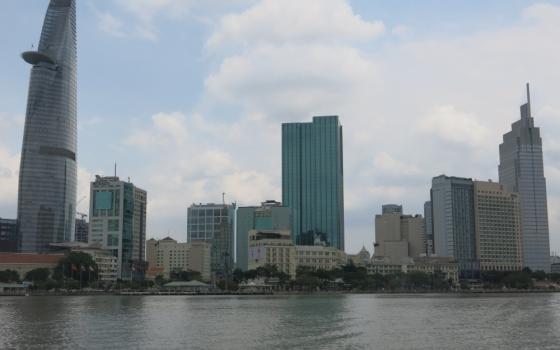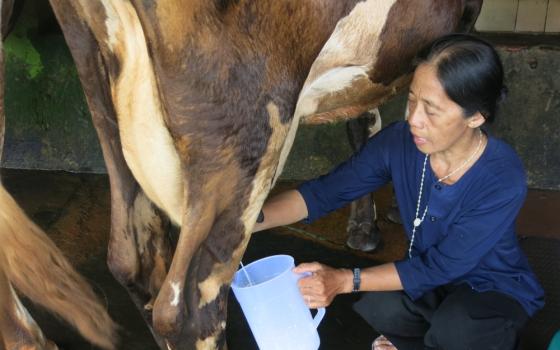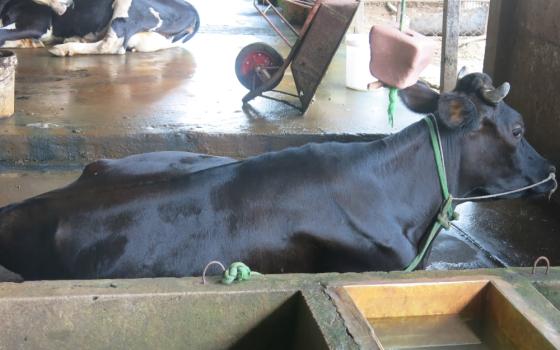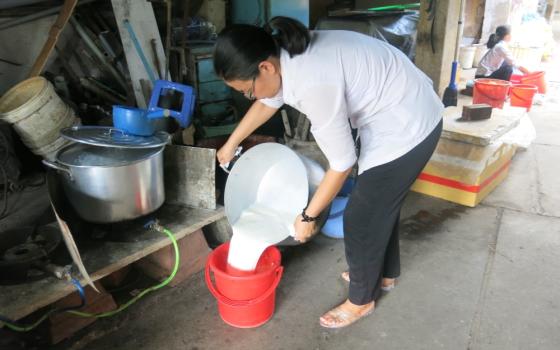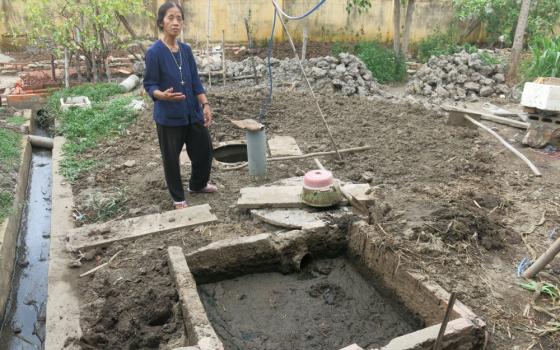When Sr. Martha Nguyen Thi Quan took her vows in 1989, she did not expect to run a dairy farm on the banks of the Saigon in Vietnam's largest city. But a year later, a farmer sold her convent two cows, and she was in business. Now, Quan, four farm workers and a handful of Lovers of the Holy Cross of Thu Thiem sisters operate the only farm run by the church in Ho Chi Minh City, selling quality milk to local communities.
Along the banks of the Saigon River in Ho Chi Minh City, a small dairy farm is couched in the compound of the motherhouse of the Lovers of the Holy Cross of Thu Thiem. The convent dates back 176 years. For the last 26, Sr. Martha Nguyen Thi Quan has been the chief operator of the farm.
"At that time, the sisters did not know how to look after cows, so I volunteered to care for them," Quan says. They started with two cows, now they have 30.
"We collect an average of 300 liters of milk from them a day," Quan says. "We try to make them produce milk with high quality rather than large quantity."
Pregnant cows stop milking until they give birth, and some cows milk less than normal or produce poor quality milk due to their health. Quan puts a priority on caring for the cows and and supplying the sisters and their customers with top-grade milk, so the net income is not significant, she says. The dairy farm augments the main work of the convent, which is to run day-care centers.
Quan, who is in her late 50s, says she has developed close relationships with the cows. They affectionately tug at her clothes as she passes by and moo loudly when they hear her voice or see her returning from her work outside. She knows them by their characters and names them so that she can follow their lineage and develop them into highly productive partners. A black cow was named Obama because she was born as the U.S. president took office in 2009.
Others are named after brands of cars, motorbikes or leading football clubs in the world. The cows are fed fresh grasses, manioc flour, mash of rice and other substances. They are bathed four times a day and given regular medical check-ups. Milk, which the nuns sell below market price, can be stored in refrigerators for seven days, and even longer, without preservatives. Only the strongest female calves are chosen to become milk cows. The rest are sold for meat.
"Our top priority is to provide fresh milk with good quality to bring good health to people," Quan says. "That is our way of evangelization in a society where contaminated and bad-quality food is rampant."
Four men are employed to collect grass for feed, clean the farm facilities and tend, bathe and milk the cows. Besides their wages, they receive free food and accommodations at the convent. The employees help bottle the milk and deliver it to homes for retired priests and nuns, people with physical disabilities at church-run centers and local people.
The rest is supplied to an international nursery in the city and a local dairy company. Two or three sisters also help pasteurize the milk by heat treatment when they have free time from other convent duties. None of the cows' produce is wasted. Other than income generated from the milk and meat of the cows, their solid waste is used to produce biogas for heating and fertilizing trees around the convent, Quan says.
[Joachim Pham is a correspondent for Global Sisters Report, based in Vietnam.]
